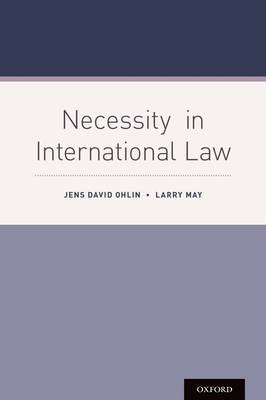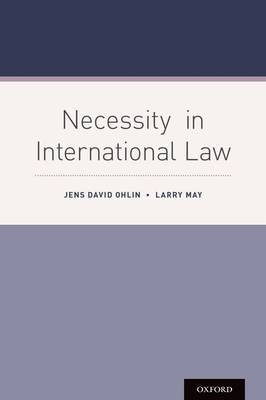
- Afhalen na 1 uur in een winkel met voorraad
- Gratis thuislevering in België vanaf € 30
- Ruim aanbod met 7 miljoen producten
- Afhalen na 1 uur in een winkel met voorraad
- Gratis thuislevering in België vanaf € 30
- Ruim aanbod met 7 miljoen producten
Zoeken
Omschrijving
Necessity is a notoriously dangerous and slippery concept-dangerous because it contemplates virtually unrestrained killing in warfare and slippery when used in conflicting ways in different areas of international law. Jens David Ohlin and Larry May untangle these confusing strands and perform a descriptive mapping of the ways that necessity operates in legal and philosophical arguments in jus ad bellum, jus in bello, human rights, and criminal law. Although the term "necessity" is ever-present in discussions regarding the law and ethics of killing, its meaning changes subtly depending on the context. It is sometimes an exception, at other times a constraint on government action, and most frequently a broad license in war that countenances the wholesale killing of enemy soldiers in battle. Is this legal status quo in war morally acceptable? Ohlin and May offer a normative and philosophical critique of international law's prevailing notion of jus in bello necessity and suggest ways that killing in warfare could be made more humane-not just against civilians but soldiers as well. Along the way, the authors apply their analysis to modern asymmetric conflicts with non-state actors and the military techniques most likely to be used against them. Presenting a rich tapestry of arguments from both contemporary and historical Just War theory, Necessity in International Law is the first full-length study of necessity as a legal and philosophical concept in international affairs.
Specificaties
Betrokkenen
- Auteur(s):
- Uitgeverij:
Inhoud
- Aantal bladzijden:
- 294
- Taal:
- Engels
Eigenschappen
- Productcode (EAN):
- 9780190622930
- Verschijningsdatum:
- 6/10/2016
- Uitvoering:
- Hardcover
- Formaat:
- Genaaid
- Afmetingen:
- 155 mm x 20 mm
- Gewicht:
- 498 g

Alleen bij Standaard Boekhandel
+ 515 punten op je klantenkaart van Standaard Boekhandel
Beoordelingen
We publiceren alleen reviews die voldoen aan de voorwaarden voor reviews. Bekijk onze voorwaarden voor reviews.








